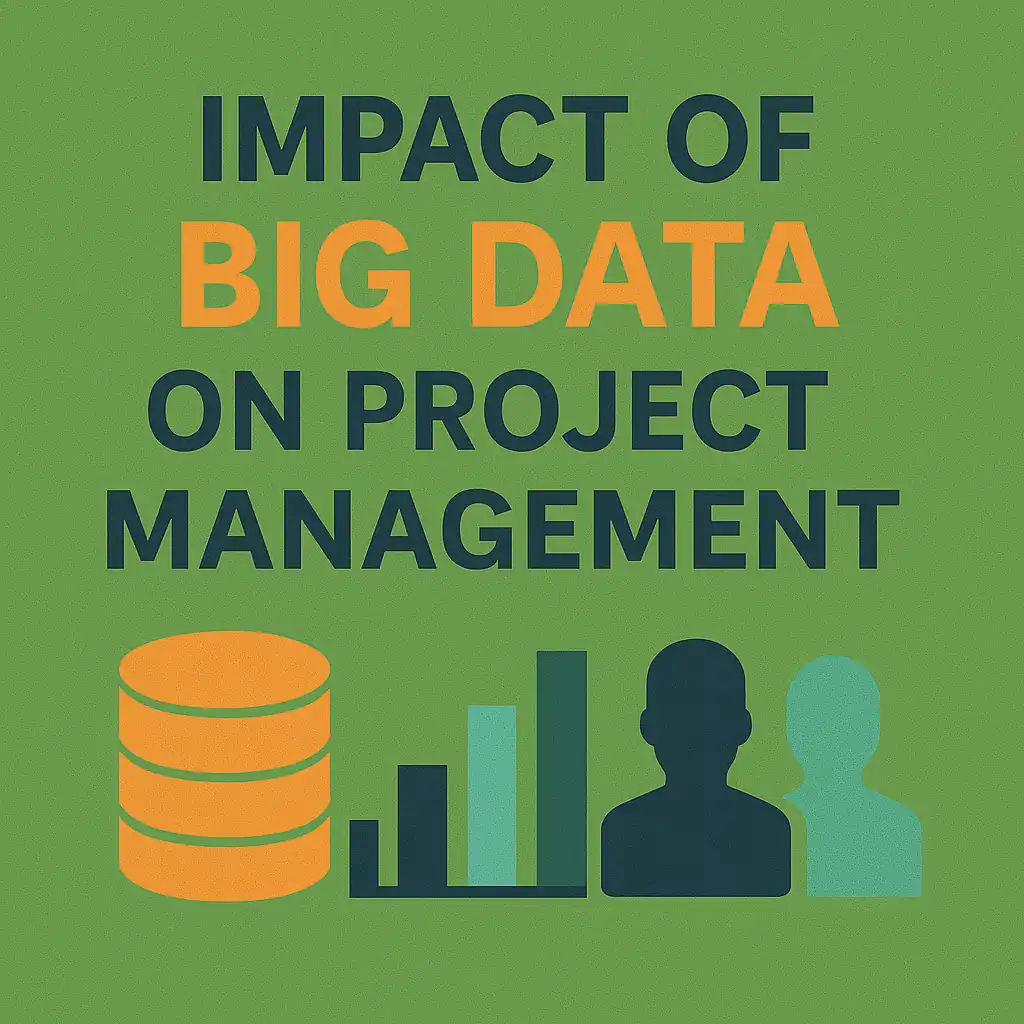Introduction
In today’s rapidly evolving business landscape, the concept of big data has emerged as a pivotal force, reshaping how organizations operate and make decisions. Big data refers to the vast volumes of structured and unstructured data generated every second, which, when analyzed, can yield valuable insights that drive strategic initiatives. The relevance of big data in the business environment cannot be overstated; it enables organizations to uncover trends, enhance operational efficiency, and improve customer experiences, ultimately leading to a competitive advantage in the marketplace [3][9].
Within this context, the roles of data analysts and project managers have become increasingly intertwined. Data analysts are tasked with dissecting large datasets to identify hidden patterns and translate complex numbers into actionable insights. Their expertise in statistical analysis and modeling is crucial for making data-informed decisions that can significantly impact project outcomes [5][15]. On the other hand, project managers are responsible for overseeing projects from inception to completion, ensuring that resources are allocated effectively and that project goals are met. They play a vital role in integrating data analytics into project planning and execution, thereby enhancing the overall project management process [8][11].
Understanding the relationship between big data and project management is essential for professionals in both fields. As organizations increasingly rely on data-driven strategies, project managers must be equipped to leverage big data analytics to identify risks, optimize resource allocation, and enhance decision-making processes. Simultaneously, data analysts must collaborate closely with project managers to ensure that the insights derived from data are effectively utilized to inform project strategies and drive successful outcomes. This synergy between data analytics and project management marks a new era in which both roles are critical to navigating the complexities of modern projects and achieving organizational goals [2][11].
In this blog section, we will explore how big data is transforming project management and delve deeper into the distinct yet complementary roles of data analysts and project managers, highlighting the importance of collaboration in this data-driven age.
Understanding Big Data
The advent of big data has ushered in a transformative era, reshaping the roles of both data analysts and project managers. To fully appreciate this shift, it is essential to understand what big data entails and its defining characteristics.
Defining Big Data
Big data refers to the vast and complex datasets that organizations collect, analyze, and mine for valuable insights. It encompasses a combination of structured, semi-structured, and unstructured data, which can be harnessed to inform decision-making and enhance project outcomes [12]. The key characteristics of big data are often summarized by the “5 Vs”:
- Volume: This refers to the sheer amount of data generated every second. In project management, this can include data from various sources such as project schedules, resource allocations, and stakeholder communications [2].
- Velocity: Big data is characterized by the speed at which it is generated and processed. Real-time data analysis allows project managers to make timely decisions, adapting to changes and challenges as they arise [7].
- Variety: Big data encompasses different types of data, including text, images, and videos, all of which can be stored in unstructured databases. This diversity allows for a more comprehensive analysis of project-related information [7].
- Veracity: This aspect pertains to the accuracy and reliability of the data. Ensuring high-quality data is crucial for project managers and analysts to derive meaningful insights [5].
- Value: Ultimately, the goal of leveraging big data is to extract value from it. This involves transforming raw data into actionable insights that can improve project efficiency and effectiveness [8].
Sources of Big Data in Project Management
In project management, big data can originate from various sources, including:
- Project Management Software: Tools that track project progress, resource allocation, and timelines generate significant amounts of data that can be analyzed for insights.
- Stakeholder Feedback: Surveys, interviews, and social media interactions provide qualitative data that can inform project decisions and stakeholder engagement strategies.
- Market Trends: External data sources, such as industry reports and competitor analysis, can offer valuable context for project planning and execution.
- Operational Data: Information from day-to-day operations, including performance metrics and resource utilization, contributes to a comprehensive understanding of project dynamics [10].
The Importance of Data Analytics
Data analytics plays a pivotal role in transforming big data into actionable insights. By employing analytical techniques, project managers and analysts can:
- Identify Trends: Analyzing historical data helps in recognizing patterns that can inform future project planning and risk management strategies [1].
- Optimize Resources: Data analytics enables project managers to allocate resources more effectively, ensuring that the right skills and tools are available when needed [10].
- Enhance Decision-Making: With access to real-time data and analytics, project managers can make informed decisions that align with project goals and stakeholder expectations [9].
The Role of Data Analysts in Project Management
The integration of big data has significantly transformed the roles of both data analysts and project managers. Data analysts play a crucial role in enhancing project outcomes through their expertise in data-driven methodologies. Here’s a closer look at how data analysts contribute to the project management process:
- Defining the Role of Data Analysts: Data analysts are responsible for exploring vast and complex datasets to identify valuable insights that can drive business initiatives. They ensure that an organization’s data science efforts are directed efficiently, which is essential for successful project management. Their role extends beyond mere data collection; they are integral in interpreting data within the business context, making their insights more relevant and impactful for project managers [7][9].
- Data Collection, Analysis, and Interpretation Techniques: Data analysts employ various techniques for data collection, validation, and cleaning to ensure the accuracy and relevance of the data used in projects. They utilize statistical analysis and modeling to interpret data effectively, which helps in identifying trends and patterns that can inform project strategies. By leveraging tools and methodologies specific to data analytics, they can provide actionable insights that guide project planning and execution [1][3][15].
- Supporting Decision-Making and Risk Management: One of the primary contributions of data analysts in project management is their ability to support decision-making processes. By analyzing historical data and current trends, they can forecast potential risks and outcomes, enabling project managers to make informed decisions. This predictive capability is particularly valuable in risk management, as it allows teams to anticipate challenges and develop strategies to mitigate them. For instance, data analysts can identify key performance indicators (KPIs) that signal project health, thus facilitating timely interventions when necessary [5][10][11].
The Role of Project Managers in the Era of Big Data
The advent of big data has significantly transformed the landscape of project management, reshaping the roles and responsibilities of project managers. As organizations increasingly rely on data-driven decision-making, project managers must adapt to these changes to ensure successful project delivery. Here’s an exploration of how project managers’ roles have evolved in this new era.
Traditional Responsibilities of Project Managers
Historically, project managers have been tasked with a variety of responsibilities that include:
- Planning the Project: Developing a comprehensive project plan that outlines objectives, timelines, and resource allocation.
- Leading the Team: Guiding and motivating team members to achieve project goals while fostering collaboration and communication.
- Executing the Project: Overseeing the implementation of the project plan, ensuring that tasks are completed on schedule and within budget.
- Managing Schedules and Budgets: Monitoring project progress and making necessary adjustments to keep the project on track [4][10].
These traditional roles have been foundational in ensuring that projects are delivered successfully. However, the integration of big data into project management has introduced new dimensions to these responsibilities.
Integration of Data Analysis into Project Planning and Execution
With the rise of big data, project managers are now expected to incorporate data analysis into their planning and execution processes. This integration allows for:
- Data-Driven Decision Making: Project managers can leverage data analytics to inform their decisions, optimizing project performance and resource allocation. By analyzing project data and metrics, they can measure progress and identify areas for improvement [7][12].
- Enhanced Risk Management: Big data enables project managers to identify potential risks earlier in the project lifecycle. By analyzing historical data and trends, they can anticipate challenges and develop proactive strategies to mitigate them [5][13].
- Improved Stakeholder Communication: Data visualization tools can help project managers present complex data in an understandable format, facilitating better communication with stakeholders and ensuring alignment throughout the project [2][4].
New Skills Project Managers Need to Adapt to the Big Data Landscape
As the role of project managers evolves, they must acquire new skills to thrive in a data-centric environment. Key skills include:
- Data Analysis Proficiency: Understanding how to interpret and analyze data is crucial. Project managers should be comfortable using data analytics tools to extract insights that can guide project decisions [7][11].
- Technical Acumen: Familiarity with project management software that incorporates data analytics features is essential. This knowledge allows project managers to streamline processes and enhance project tracking [6][10].
- Adaptability and Resilience: The ability to adjust plans based on data insights and manage team dynamics in response to changing project conditions is vital. Project managers must remain calm under pressure and be prepared to pivot strategies as needed [5][10].
Synergy Between Data Analysts and Project Managers
The integration of big data has become a pivotal factor in enhancing the effectiveness of both data analysts and project managers. Their collaborative relationship is essential for driving successful project outcomes, as it fosters a culture of informed decision-making and strategic alignment. Here are some key points that illustrate this synergy:
Importance of Communication and Collaboration
- Open Communication: Effective communication is crucial for ensuring that both data analysts and project managers are aligned on project goals and expectations. Regular updates and discussions help in sharing insights derived from data analysis, which can significantly influence project direction and strategy. This open dialogue fosters a supportive environment where team members feel valued and confident in each other’s abilities, ultimately enhancing project performance [7].
- Shared Objectives: Both roles must work towards common objectives, ensuring that data-driven insights are integrated into project planning and execution. This alignment not only streamlines processes but also enhances the overall project quality, as decisions are based on comprehensive data analysis rather than assumptions [4].
Examples of Successful Projects
- Data-Driven Decision Making: Projects that have successfully leveraged data analysis often showcase the power of this collaboration. For instance, organizations that utilized data analytics to forecast customer behavior and market trends have seen significant improvements in project outcomes. By employing data analytics teams, which include data scientists and domain experts, these organizations have been able to uncover insights that drive strategic initiatives and enhance project performance [3].
- Hackathons and Innovation: The concept of project hackathons, where teams work intensively to develop innovative solutions, exemplifies the synergy between analysts and managers. These events encourage collaboration and creativity, allowing participants to harness data insights in real-time to solve complex project challenges [3].
Tools and Methodologies for Collaboration
- Data Analytics Platforms: Utilizing advanced data analytics tools can facilitate better collaboration between data analysts and project managers. Platforms that allow for real-time data sharing and visualization enable both parties to access critical information quickly, fostering informed decision-making [9].
- Agile Methodologies: Implementing agile project management methodologies can enhance the collaboration between analysts and managers. Agile practices encourage iterative development and regular feedback loops, allowing data insights to be integrated continuously throughout the project lifecycle. This adaptability is crucial in a data-driven environment where project requirements may evolve based on new insights [8].
- Project Management Software: Tools that integrate project management with data analytics capabilities can streamline workflows and improve communication. These platforms often include features for tracking project progress, analyzing performance metrics, and facilitating team collaboration, ensuring that both analysts and managers are on the same page [10].
Challenges and Opportunities
The integration of big data into project management is reshaping the landscape for both data analysts and project managers. While this transformation presents numerous opportunities for growth and development, it also introduces a set of challenges that professionals in these roles must navigate.
Common Challenges in Integrating Big Data
- Complexity of Data: One of the primary challenges is the sheer volume and complexity of big data. Project managers often struggle with managing unstructured data, which lacks uniformity and requires sophisticated methods for indexing and searching [13]. This complexity can hinder effective decision-making and project execution.
- Data Security Concerns: As organizations increasingly rely on data, security becomes a significant concern. Data breaches and privacy issues pose risks that project managers must address in their planning and execution strategies [8][10]. Ensuring robust data security measures is essential to protect sensitive information.
- Skill Gaps: Both data analysts and project managers may face skill gaps in utilizing advanced data analytics tools and techniques. The rapid evolution of technology necessitates continuous learning and adaptation, which can be a barrier for professionals who are not adequately trained [7].
- Resistance to Change: Integrating big data into existing project management frameworks can meet resistance from team members accustomed to traditional methods. This cultural shift requires effective change management strategies to foster acceptance and collaboration [4].
Overcoming Challenges Through Training and Technology
To address these challenges, organizations can implement several strategies:
- Invest in Training Programs: Providing training opportunities for both data analysts and project managers is crucial. This can include workshops on data analytics tools, data visualization techniques, and best practices for data security. By enhancing their skill sets, professionals can better navigate the complexities of big data [6][15].
- Leverage Technology: Utilizing advanced analytics software and project management tools can streamline data integration processes. These technologies can help project managers visualize data trends and make informed decisions, ultimately improving project outcomes [3][5].
- Foster a Data-Driven Culture: Encouraging a culture that values data-driven decision-making can help mitigate resistance to change. By demonstrating the benefits of big data analytics through successful case studies, organizations can inspire team members to embrace new methodologies [2][4].
Opportunities for Career Growth and Development
The rise of big data presents significant opportunities for career advancement for both data analysts and project managers:
- Expanded Roles: As organizations increasingly rely on data to drive decisions, the roles of data analysts and project managers are evolving. Analysts can take on more strategic responsibilities, such as interpreting data insights to inform project direction, while project managers can enhance their leadership skills by integrating data analytics into their project planning [1][14].
- Cross-Disciplinary Collaboration: The intersection of data analytics and project management fosters collaboration between these two roles. This synergy can lead to innovative solutions and improved project success rates, creating a demand for professionals who can bridge the gap between data analysis and project execution [6][15].
- Increased Demand for Skills: The growing importance of data analytics in project management means that professionals with expertise in both areas will be highly sought after. This trend opens up new career paths and opportunities for specialization, allowing individuals to position themselves as leaders in the field [1][14].
Future Trends in Project Management and Big Data
The integration of big data into project management is ushering in a transformative era for both data analysts and project managers. As organizations increasingly rely on data-driven decision-making, the roles of these professionals are evolving to meet new demands and challenges. Here are some key trends and predictions regarding the impact of big data on project management:
Emerging Technologies Shaping Project Management
- Artificial Intelligence (AI) and Machine Learning: The adoption of AI and machine learning technologies is set to revolutionize project management processes. These tools can automate routine tasks, allowing project managers to focus on strategic decision-making and leadership. According to projections, up to 80% of project management tasks could be automated by 2030, significantly altering the landscape of project management roles [4][11].
- Data Analytics: The reliance on data analytics is becoming the norm in project management. Project managers are increasingly using data to identify trends, predict potential issues, and make informed decisions. This shift towards data-driven strategies is expected to enhance project outcomes and efficiency [2][5].
Evolving Roles of Data Analysts and Project Managers
- Data Analysts: As the demand for data science roles surges, data analysts will play a crucial role in interpreting complex data sets and providing actionable insights. Their ability to leverage big data analytics will be essential in shaping project planning, control, and delivery. Analysts will need to develop advanced skills in data interpretation and visualization to effectively communicate findings to project managers and stakeholders [8][14].
- Project Managers: The role of project managers is also evolving. They are expected to possess strong leadership and soft skills, which are critical for navigating the dynamic project management landscape. Managers will need to embrace new technologies and methodologies, including hybrid approaches that combine traditional and agile project management practices. This adaptability will be key to driving successful project outcomes in an increasingly data-centric environment [9][10][12].
Staying Informed and Adaptable
As the project management field continues to evolve, it is imperative for both data analysts and project managers to stay informed about emerging trends and technologies. Continuous learning and adaptability will be essential for professionals to thrive in this changing landscape. Engaging with industry resources, attending workshops, and participating in professional networks can help both roles remain competitive and effective in their respective functions.
Conclusion
The influence of big data cannot be overstated. It has fundamentally transformed how projects are planned, executed, and evaluated, leading to more informed decision-making and enhanced efficiency. Here are the key takeaways regarding the impact of big data on project management and the roles of both data analysts and project managers:
- Transformative Effects of Big Data: Big data analytics has revolutionized project management by providing deeper insights into project performance, resource allocation, and risk management. By leveraging vast amounts of data, project managers can make data-driven decisions that enhance project outcomes and align with organizational goals. This shift towards data-centric methodologies allows for more precise forecasting and improved stakeholder communication, ultimately leading to successful project delivery [5][15].
- Collaboration Between Analysts and Managers: The synergy between data analysts and project managers is crucial in this new era. Data analysts bring expertise in data modeling and interpretation, enabling them to extract meaningful insights from complex datasets. Meanwhile, project managers utilize these insights to guide project strategies and ensure that objectives are met. This collaboration fosters a culture of continuous improvement and innovation, as both roles work together to navigate the challenges posed by big data [7][8].
- Ongoing Learning and Adaptation: As the field of project management continues to evolve with the integration of big data, professionals must commit to lifelong learning and adaptability. Staying abreast of the latest tools, technologies, and methodologies is essential for both data analysts and project managers to thrive. Embracing a mindset of continuous development will empower these professionals to leverage big data effectively, ensuring they remain competitive and capable of driving project success in an increasingly data-driven world [2][4].
In summary, understanding the transformative impact of big data on project management is vital for professionals in both roles. By fostering collaboration and committing to ongoing learning, data analysts and project managers can harness the power of big data to enhance project outcomes and drive organizational success.
Find out more about Shaun Stoltz https://www.shaunstoltz.com/about/.
This post was written by an AI and reviewed/edited by a human.



